Curious as to whether that awful respiratory infection you had weeks ago was indeed COVID-19?
There’s now an antibody test for that. And Spectrum Health is offering it to anyone who has a provider’s order.
The lab began to offer the test May 18.
Antibody testing—also known as serological testing—has been eagerly sought as a way to determine who has overcome a COVID-19 infection.
“There are so many unknowns about this virus,” said Adam Caulfield, PhD, technical director of the Spectrum Health Microbiology Lab. “This is another piece in our toolbox that can help us figure out how this virus is infecting those around our community.”
Before deciding whether to seek a test, it is helpful to know how the test works—and its limitations.
Dr. Caulfield and Susan Smith, senior director of laboratory services at Spectrum Health, discussed the ins and outs of antibody testing.
Q: What is involved in getting a test?
You’ll have to have an order for a COVID-19 IgG Antibody test from a doctor or advanced practice provider.
To get a test ordered, you should contact your primary care provider to inquire whether he or she feels you would benefit from the test.
Once a test is ordered, you’ll go to a Spectrum Health lab location nearest you to have a blood sample drawn.
The lab will perform serology—or antibody—testing that measures the body’s immune response to a COVID-19 infection. It looks for the production of antibodies against the SARS-CoV-2 virus that causes COVID-19.
Q: What exactly is the test?
As Spectrum Health prepared to offer COVID-19 antibody tests, laboratory officials looked for the most effective, reliable way to test whether a person has developed an immune response to the disease.
They chose an approach that uses two tests to check for the presence of COVID-19 antibodies. If a person tests positive with the initial screen, the lab runs a second test to see if it confirms the result.
“The Centers for Disease Control and Prevention and various agencies recommend using these two tests to get more specificity and to ensure these results are valid,” Dr. Caulfield said.
Q: Why does the Spectrum Health lab perform two versions of the antibody test?
This is to increase the specificity of the results and to avoid reporting a false positive result. The initial screen measures several types of antibodies: IgA, IgM and IgG.
If the sample is positive, the lab confirms the result with a second method that specifically measures IgG, the smallest and most common antibodies, which are found in all body fluids.
Q: How long will I have to wait for results?
Spectrum Health has the ability to process up to 1,000 antibody tests a day. Results typically will be available in less than 24 hours.
Q: If I test positive for antibodies, what does that mean?
A positive test result means you had a previous infection with the virus that causes COVID-19.
Q: Does a positive test mean I am immune to the disease?
Not necessarily. At this time, it is unknown whether the presence of antibodies confers immunity or protection against future reinfection with SARS-CoV-2. Even if there is some protection, future scientific studies are required to determine the extent and duration of that protection.
You should continue to take steps to protect yourself and others from transmission of the virus.
Wear a mask. Practice social distancing. Wash your hands frequently.
Q: Does the test result indicate the strength of the antibody response?
No, the result will be simply positive or negative.
Q: What does a negative test result mean?
It could mean you were never infected with the virus. Or it could mean that, even if you were infected, your body did not produce enough antibodies to be detected.
Q: Who might be interested in getting tested?
Some people who had a recent respiratory illness were unable to be tested for the novel coronavirus that causes COVID-19.
“This type of serology test would inform you whether you did in fact have an infection with COVID-19,” Dr. Caulfield said.
And for those who do test positive for the COVID-19 virus, the antibody test may be used to screen donors for convalescent plasma therapy.
Q: Who should get tested?
The test is recommend for:
- Individuals who had symptoms consistent with COVID-19, and they experienced those symptoms at least 10 days ago.
- Those who have been exposed to a confirmed COVID-19 infection.
Q: Why do you have to wait for a period of time after symptoms before getting an antibody test?
It takes time for the body to develop antibodies that would be detected by the test.
Q: How much does the test cost?
The Spectrum Health test costs $45. It is anticipated that most insurance plans will cover the cost.
Q: What if I think I have a COVID-19 infection now?
An antibody test is not for you. Those with symptoms should get a PCR (polymerase chain reaction) test, also known as a molecular test, for the virus that causes COVID-19. Testing for a current infection is done with a nose swab.
If you are in the state of Michigan and experiencing symptoms of the respiratory disease caused by the novel coronavirus, you are encouraged to call Spectrum Health’s free hotline at 833.734.0013.
Q: Are these tests approved by the Food and Drug Administration?
There are currently no FDA-approved antibody or molecular tests for COVID-19.
There was not enough time to perform a clinical trial, which is required for FDA approval. The company that manufactured the test collected data, which was reviewed by the FDA before the test received emergency-use authorization.
“As time goes on, we are learning more about the performance of these tests,” Dr. Caulfield said.
Q: What criteria did Spectrum Health use in selecting the tests?
Any test for any disease may result in false positives and false negatives.
“We made sure to select tests that had high specifity values that allow positive results to be more accurately interpreted,” Dr. Caulfield said.
In an effort to eliminate false positive results, the Spectrum Health laboratory and the test manufacturer both ran the test on serum samples obtained before COVID-19 emerged—to make sure it did not cross-react with other forms of coronavirus.
Q: What else was involved in bringing about this test?
In addition to validating the test, the Spectrum Health Laboratory acquired the instrumentation, conducted a legal review and connected results with patients’ electronic medical records.
The coordination among various teams—legal, financial, information services and the laboratory—came together quickly to provide the antibody test to the community.
“The process usually takes months,” Smith said. “In this case, we did it in three weeks.”
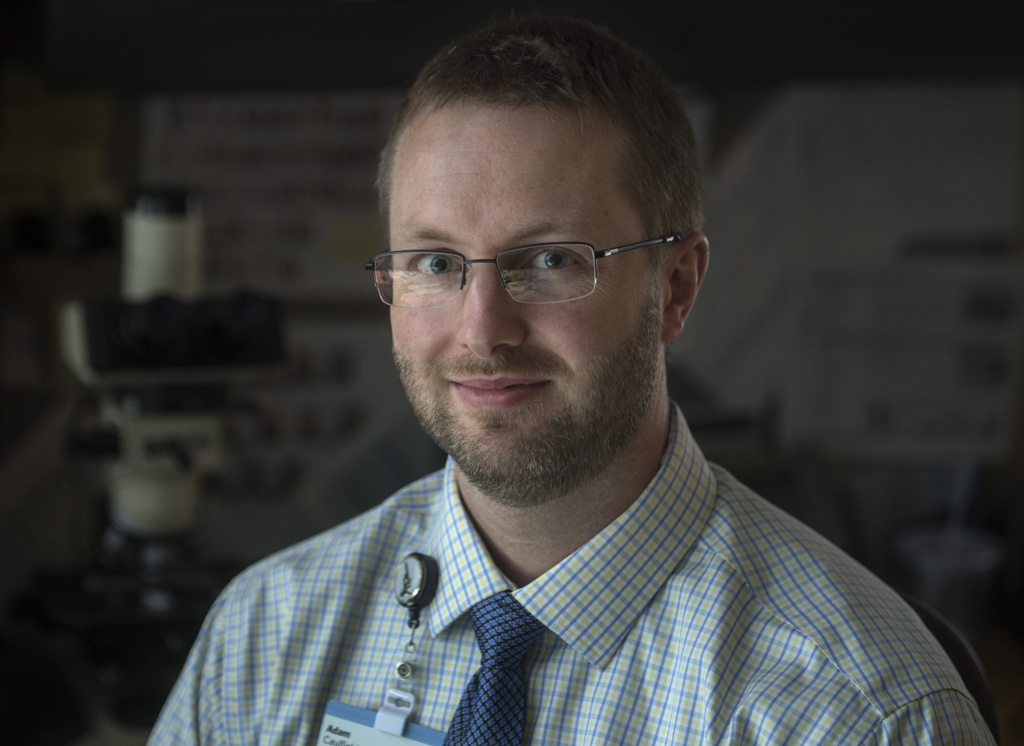
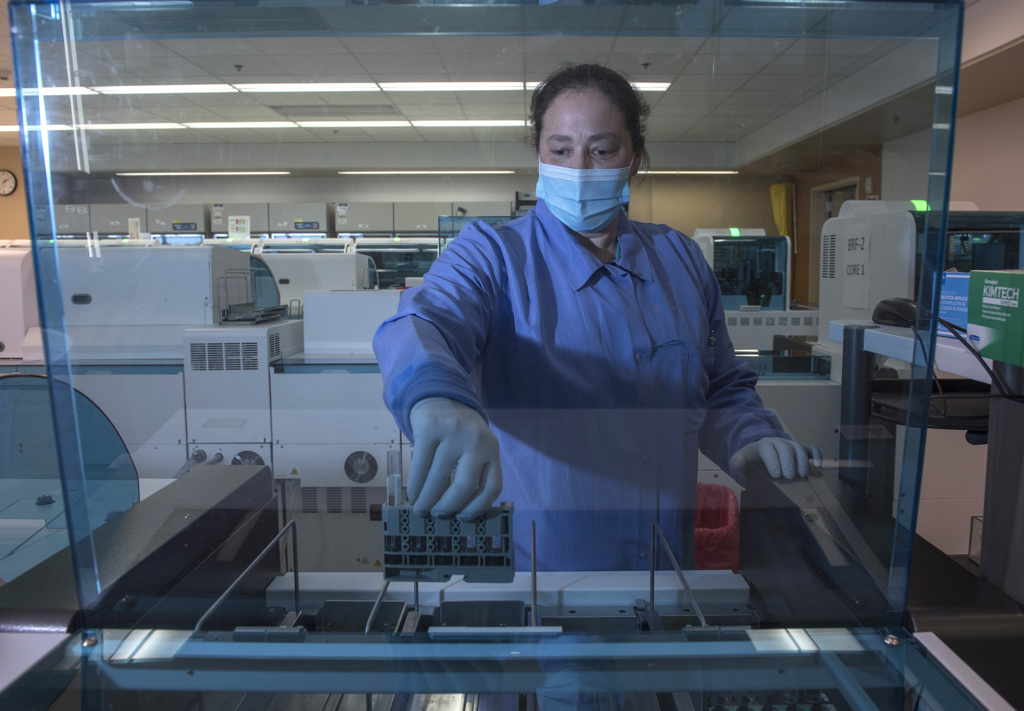
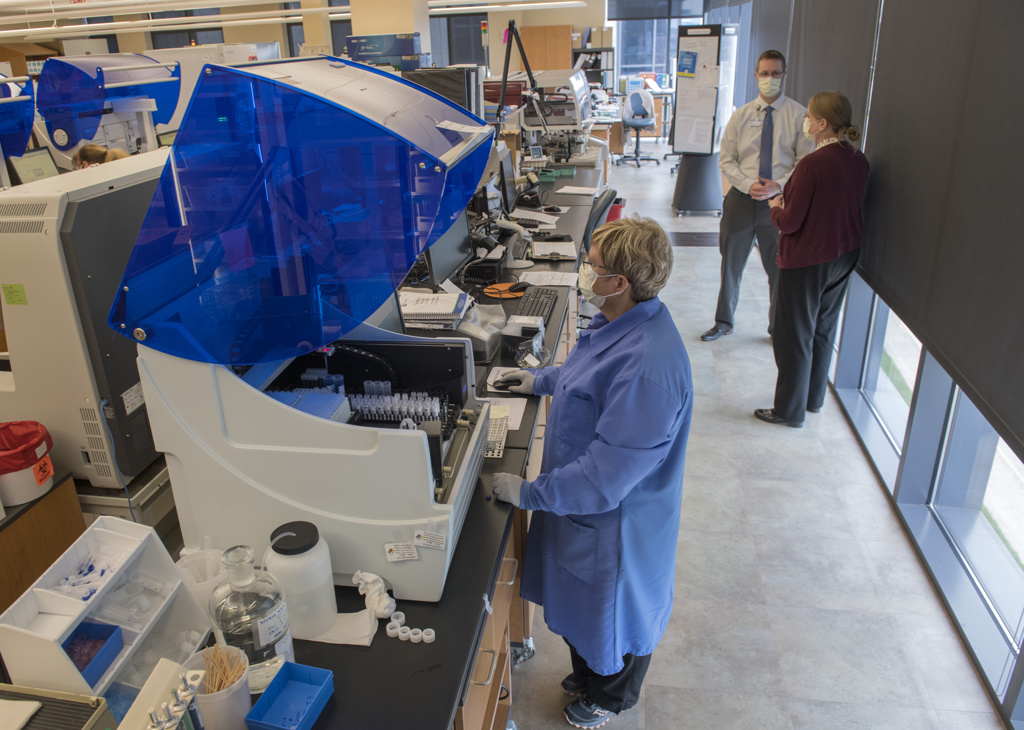
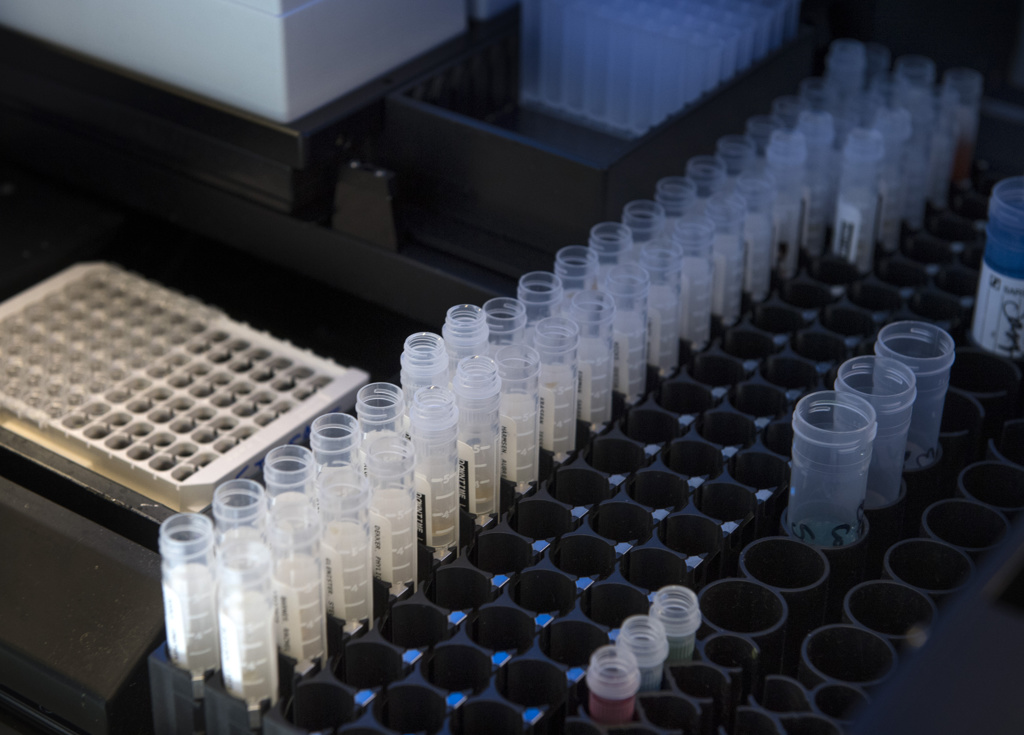
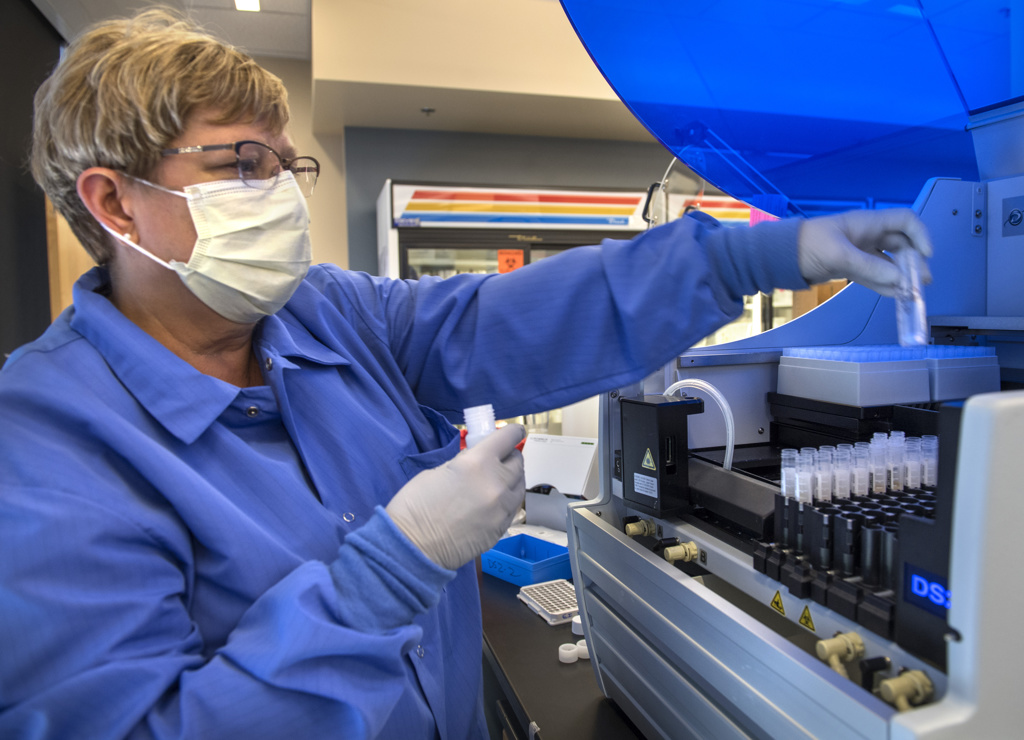
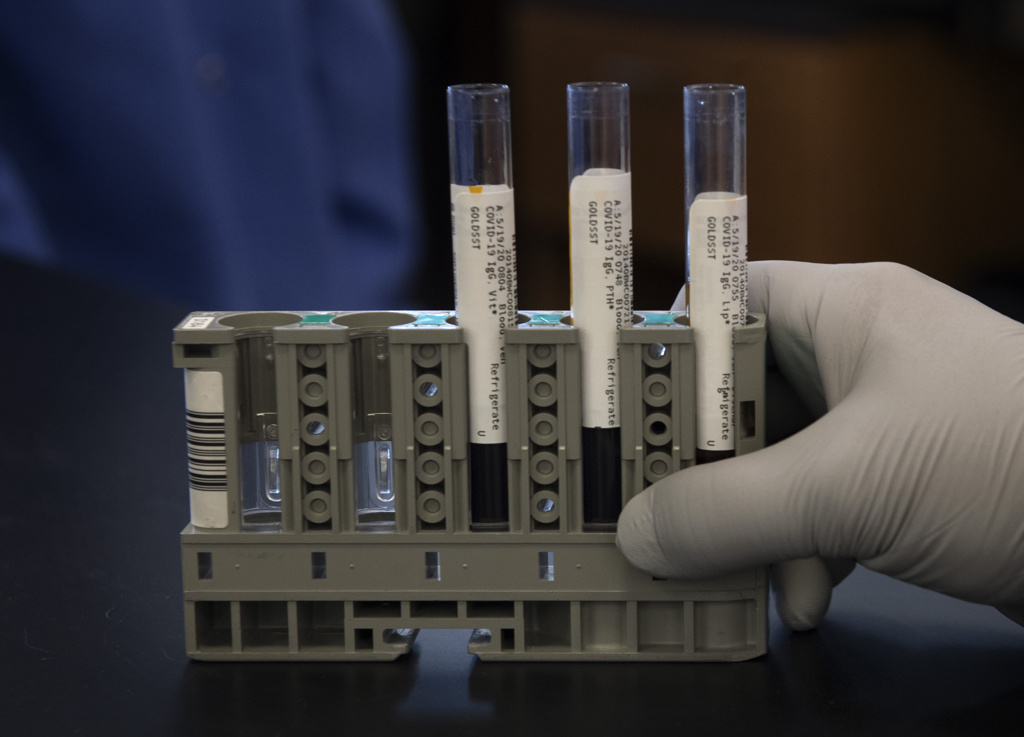



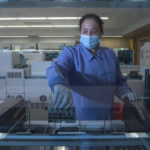
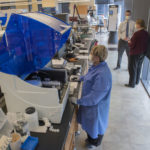
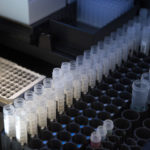
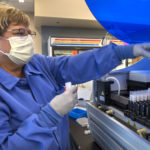
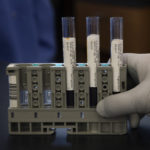
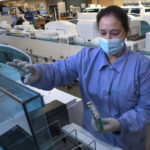


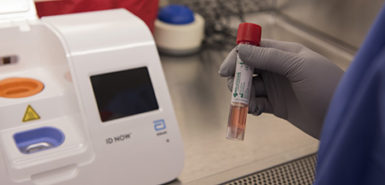 /a>
/a>
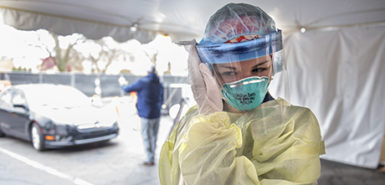 /a>
/a>
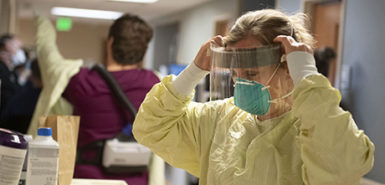 /a>
/a>
My provider is saying that this test produces a false positive 50% of the time. Is that true?
Hi Lynn – This is why Spectrum Health has a two-step process. Here’s the information the lab provided on this:
As Spectrum Health prepared to offer COVID-19 antibody tests, laboratory officials looked for the most effective, reliable way to test whether a person has developed an immune response to the disease.
They chose an approach that uses two tests to check for the presence of COVID-19 antibodies. If a person tests positive with the initial screen, the lab runs a second test to see if it confirms the result.
“The Centers for Disease Control and Prevention and various agencies recommend using these two tests to get more specificity and to ensure these results are valid,” Dr. Caulfield said.
This is to increase the specificity of the results and to avoid reporting a false positive result. The initial screen measures several types of antibodies: IgA, IgM and IgG.
If the sample is positive, the lab confirms the result with a second method that specifically measures IgG, the smallest and most common antibodies, which are found in all body fluids.
I was planning on taking the test. But,as I read the info in here it says at least 10 days before if you had it.
I was very I’ll from just after christmas 2019 to finally feeling better end of Feb 2020.
I was seen 3 times for being sick but,they never tested me for flu.
Anyway being it so long ago should I take the test?
Sorry you were so ill for so long, Denise. It sounds like it’s been more than 10 days since you had symptoms. I suggest asking your doctor or primary care provider about whether to get the antibody test.
I was interested in taking the test, but from what I understand unless I have a provider telling me I need it, then I cannot get it? My wife and I were sick for a couple of weeks back in February and for us it’s just a mere curiosity to see if we had it or not.
You do need to have a test ordered by a provider. I have family members who had the same question as you. They called their doctor and requested a test. The order was called in and they got the blood test. (Both came back negative for antibodies.)
I flew to & from Las Vegas the first weekend in february—i have had vague symptoms on & off : scratchey throat(with dry cough rest of feb), days where i am achey , a several week period of on & of dull chest pain(gad cardiac workup that was neg)Should i have antibody test & has it been too long?
Hi Susan, Sorry to hear you’re still not fully recovered. We recommend you consult with your primary care provider about your ongoing symptoms and inquire about an antibody test. He/She is required to put in an order for an antibody test, so they would be the next step for you. Best wishes to you.
Hi, I’d like to take an antibody test, do you show IgM figure in the result? Thank you in advance 🙂